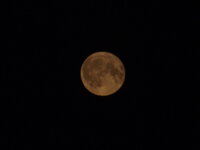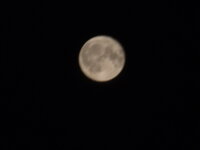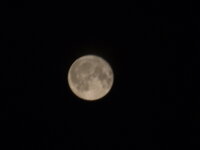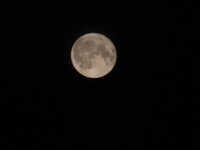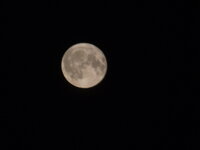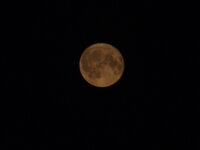Okay, so, I'll start by sharing this thing... it's not a drawing this time. Today, I have a photo for you. Here:

Now, this photo is heavily altered, and started out looking like this:
 f
f
To explain, this project was a gift for my father... this particular sign has some meaning to him from his childhood (he actually has another sign from a different part of that road that's just sitting in the basement here for some reason). My stepmother came up with the idea, took the gray photo with her phone, sent it to me, and just asked me to "do things" to it and we'd get it printed as a gift. The photo was taken in the middle of the night for who knows what reason, and that wouldnt do, so it was time to get creative. The final image was professionally printed and framed and now hangs on a wall.
Now, I went into this not really knowing what I was doing. I have Photoshop, I changed my Adobe subscription to also include Lightroom, and I've got two other image processing programs that I can work with here, each good at different things, and a certain other major AI that I can ask questions of while going through the learning process of the Adobe programs (Photoshop in particular being notoriously hard to use, I get lost trying to find the bloody functions I need.) The end result here is a combination of using Photoshop and Lightroom, but also using program #3 (which I suddenly cant remember the name of), which can use a high-end AI of its own to produce a wide variety of effects. The image AI was used to deal with some splotchy weirdness and noise that occurred during the alteration process, as well as to massively upscale the thing (seriously the final result is *huge*). Now, the end result isnt perfect... the powerlines in the background got a little weird and I just could not figure out how to fix that, and same with the grass. But hey, when the client just places an order of "do something" and I have no idea what I'm doing, well, I think it came out decently.
Now, I also recently had the idea of a hobby sort of thing I could do along with my father, who always expressed an interest in photography. We could go to different locations, he could take photos, and I could then do stuff with them. That sounds good.
Phone cameras just wont do though, so the question I have for anyone here is: what sorts of proper cameras might you recommend? I've tried browsing around myself but I have no idea what I'm looking at, it's just this bewildering array of gizmos that I dont understand.
Any suggestions would be much appreciated!
Now, this photo is heavily altered, and started out looking like this:
To explain, this project was a gift for my father... this particular sign has some meaning to him from his childhood (he actually has another sign from a different part of that road that's just sitting in the basement here for some reason). My stepmother came up with the idea, took the gray photo with her phone, sent it to me, and just asked me to "do things" to it and we'd get it printed as a gift. The photo was taken in the middle of the night for who knows what reason, and that wouldnt do, so it was time to get creative. The final image was professionally printed and framed and now hangs on a wall.
Now, I went into this not really knowing what I was doing. I have Photoshop, I changed my Adobe subscription to also include Lightroom, and I've got two other image processing programs that I can work with here, each good at different things, and a certain other major AI that I can ask questions of while going through the learning process of the Adobe programs (Photoshop in particular being notoriously hard to use, I get lost trying to find the bloody functions I need.) The end result here is a combination of using Photoshop and Lightroom, but also using program #3 (which I suddenly cant remember the name of), which can use a high-end AI of its own to produce a wide variety of effects. The image AI was used to deal with some splotchy weirdness and noise that occurred during the alteration process, as well as to massively upscale the thing (seriously the final result is *huge*). Now, the end result isnt perfect... the powerlines in the background got a little weird and I just could not figure out how to fix that, and same with the grass. But hey, when the client just places an order of "do something" and I have no idea what I'm doing, well, I think it came out decently.
Now, I also recently had the idea of a hobby sort of thing I could do along with my father, who always expressed an interest in photography. We could go to different locations, he could take photos, and I could then do stuff with them. That sounds good.
Phone cameras just wont do though, so the question I have for anyone here is: what sorts of proper cameras might you recommend? I've tried browsing around myself but I have no idea what I'm looking at, it's just this bewildering array of gizmos that I dont understand.
Any suggestions would be much appreciated!

